Increasingly, organic gardeners who want a nutrient-rich fertilizer are considering black hen chicken manure. This article aims to provide detailed information about the diverse advantages of black hen chicken manure and how it can be applied to different surfaces. Therefore, this article’s composition will involve insights into the Black Hen Chicken Manure, essential plant nutrients that are delivered by it, and how it aids plant growth. Furthermore, the essay will explain how chicken waste can be composted to increase its potency and make it healthier for gardeners to use. Our primary goal is to offer deep insights into organic fertilization practices through a scientific approach coupled with practical strategies that ultimately help readers improve their knowledge base on this topic thereby cultivating more productive gardens.
What is Chicken Manure and How is it Used in Compost?
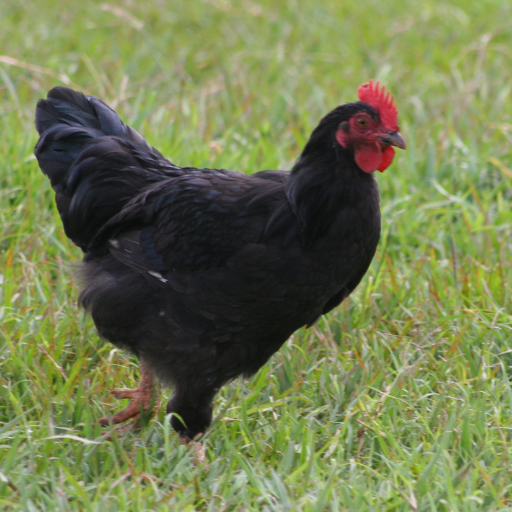
Chicken dung, a by-product of poultry farming, comprises faeces and some bedding material left behind by chickens. Manure is very rich in essential nutrients such as nitrogen, phosphorus, potassium, and several other micronutrients that are necessary for plant growth. Chicken manure acts as the ‘green’ carbon-rich dried leaves or straw that balance with ‘brown’ carbon-rich materials, e.g., dried leaves or straw, when used in composting. Composting chicken manure must be reduced to decompose and stabilize it so that burning the roots of plants does not occur due to unprocessed high nitrogenous waste, and pathogens are eliminated. Compost may take months before it finishes its process where microbial activity breaks down organic matter into a more stable substance like humus. The resulting compost can be applied to garden soil to enhance its fertility and structure.
Benefits of Chicken Manure Compost
Chicken manure compost has several benefits, making it an excellent choice for improving soil quality and promoting plant development. First and foremost, it offers very high nitrogen levels at about 1.5-2.5%. This nutrient is important for vegetative growth leading to healthy plants. Phosphorous contents lie between 1.0-1.5%, which is essential for rooting system development and flowering processes during this production stage, while potassium content ranges from 0.5-1%, which assists in overall plant health, increasing disease resistance, and improving water efficiency.
Additionally, chicken dung compost improves soil structure by adding organic matter content, thus enhancing water retention capabilities and the aeration status of soils around them, respectively. Secondly, through several techniques referred to as the practice called “composting,” beneficial microbes appear naturally within it. Nitrifying bacteria get established, releasing ammonia gas, what we refer to just as being nitrogen fixed into soluble form only when these bacteria are grown pathogen presence can also be avoided because they are killed by heat. By so doing, garden yields can be improved sustainably and promotes robust plant health.
Using Chicken Manure in Your Garden
Before using chicken manure compost as fertilizer in the farm, ensure it is fully decomposed lest it causes harm to plants. Start off by scattering compost evenly, about 1 to 2 inches thick, over the ground surface. For optimal results, incorporate it into the top 6-8 inches of soil for nutrient integration. This can be done with a fork or tiller, but if you have enough time, practice without tools. For grown-up plants, spread manure compost atop them, ensuring it does not touch their stems directly to prevent scorching. Continuously applying chicken dung compost to the soil will keep its fertility levels high and help sustain healthy plant growth during the growth period throughout this period until it’s ready for harvest once again.
How Does Chicken Manure Compost Improve Plant Growth?
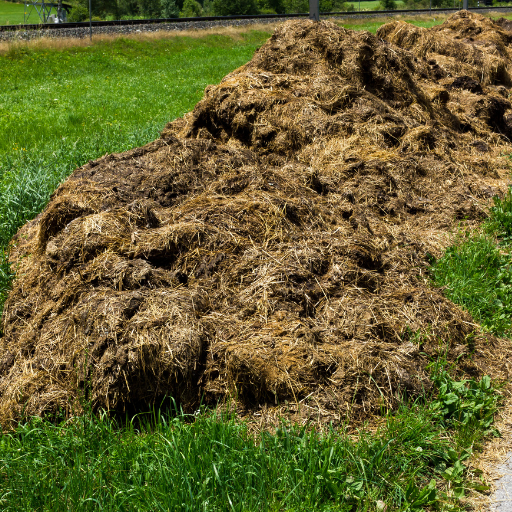
Chicken manure compost improves plant growth via several key mechanisms. It provides a balanced nutrient profile by providing essential macronutrients such as nitrogen, phosphorous, and potassium, which play vital roles in many stages of growth and physiological functions of plants. Nitrogen increases leafy growth, while phosphorous promotes root systems and blooms. Potassium helps increase disease resistance in plants while improving water uptake efficiency.
Again, organic matter content in chicken manure compost enhances soil structure hence its ability to retain moisture and promote aeration. This is important for the root health and facilitating robust nutrient uptake. The composting also introduces helpful microorganisms into the soil, which are important in nutrient cycling and suppression of harmful pathogens, among others; these activities enhance nutrient bioavailability, thus promoting plant development further. Therefore the regular application of chicken manure compost creates an active fruitful soil ecosystem that eventually yields sustainability through increased garden productivity.
Nutrient Content in Chicken Manure Compost
Chicken manure compost is popularly known due to its high nutrient content, which makes it an outstanding organic fertilizer. It commonly has a good proportion of macronutrients needed for crops’ growth. This includes approximately 1.8% nitrogen (N), 1.5% phosphorus (P), and 0.8% potassium (K). These figures have been obtained from combined sources and represent an average value found within well-composed chicken manure.
- Nitrogen (1.8%): Nitrogen is critical for the synthesis of amino acids, which are the building blocks of proteins in plants. It is also crucial for leaf/stem development and chlorophyll production, which is necessary for photosynthesis.
- Phosphorus (1.5%): In this sense, it is specifically responsible for energy transfer within the plant through ATP formation, besides supporting root development, flowering and fruiting processes that are most important during the reproductive stages of a plant’s life.
- Potassium (0.8%): Poor protein and starch synthesis in this plant may lead to inappropriate enzyme activation and water uptake regulation. Hence, continuous supply of that nutrient helps to enhance disease resistance, drought tolerance, and the overall station of the plant back into balance.
Apart from being a rich source of these macronutrients, chicken manure compost is also rich in micronutrients such as calcium, magnesium and sulphur and organic matter which are important for improving soil structure, promoting microbial activity and enhancing the bioavailability of essential nutrients thus ensuring sustained and vigorous plant growth.
Impact on Soil Quality
Various mechanisms account for how chicken manure composting can significantly improve soil quality after its application. Firstly, stabilizing soil aggregates ensures better aeration and moisture retention, resulting in improved soil structure. Therefore, plants’ roots can easily access the required amounts of moisture and oxygen. Secondly, due to the high content of organic components present in this type of compost, there is a proliferation of beneficial microorganisms like bacteria and fungi, which are involved in the nutrient-cycling process and breaking down organic matter into simpler forms. Lastly, enough quantities or properly balanced macro/micronutrients replenish fertility status lost through successive cultivation practices; thereby, such effect leads to sustainability, causing continual harvesting returns concerning both quantity and quality.
Chicken manure compost is vital for plant health enhancement due to many nutrients it contains. High nitrogen content in chicken manure promotes vigorous vegetative growth, leading to lush and green foliage. Moreover, the organic matter contained in the compost enhances soil structure allowing better root penetration and moisture retention. It creates an environment where roots can grow more stably by minimizing water stress and nutrient leaching risks. The existence of beneficial microorganisms also helps to hold down soil-borne diseases and pests, thus making the rhizosphere healthier. Furthermore, supplying balanced amounts of essential nutrients such as potassium and phosphorus supports flowering and fruiting processes, leading to higher crop yields and better quality produce. In general, chicken manure is an all-inclusive solution that increases plant resilience besides promoting their well-being and strength.
What are the Advantages of Using Black Hen Chicken Manure?
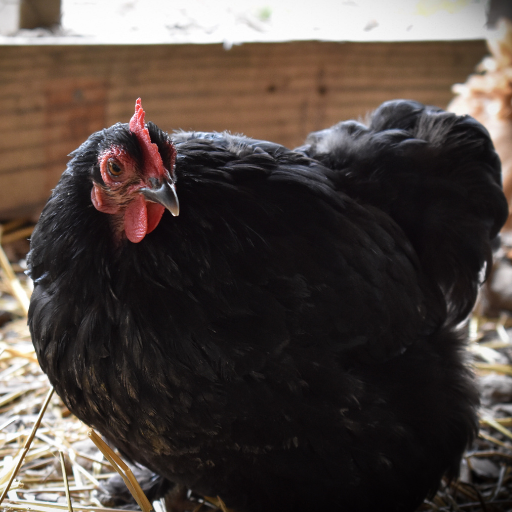
The main advantage of Black Hen chicken manure is its richness in nutrients. This compost has a high nitrogen, phosphorus, and potassium content, which are essential for the growth and development of plants. Furthermore, Black Hen chicken manure supplies nutrients in a slow-release form to the plants over time. The soil structure is also enhanced, and water holding capacity is increased, crucial for root establishment and water stress reduction. Compost also encourages microbial activity within the soil, thereby helping with organic matter decomposition and consequently improving soil fertility. Besides, as a result of composting, it often does not contain any harmful pathogens or weed seeds therefore being safe for various soils and crops.
Nutritional Benefits of Black Hen Chicken Manure
Considered to be rich in nutritional value due to its high macroelements content needed for plant growth, the most significant proportion is found in Black hen’s dung, among other organic matter on earth’s ground. In general, this compost contains approximately 1.5% – 3% nitrogen (N), 1%-2% phosphorous (P) and 0.5%-1.5% potassium (K). Their roles include: Nitrogen supports leafy growth, Phosphorus helps with root formation and flower production, and Potassium enhances resistance against all kinds of diseases.
Black Hen chicken tends to have higher levels of secondary macronutrients, including calcium (Ca), magnesium (Mg), and sulfur (S). Calcium contributes to toughening cell walls, while Magnesium participates in chlorophyll synthesis since it forms the central atom. Sulfur is also used during enzyme activation, hence protein synthesis.
These nutrients are slowly released over time, avoiding their quick depletion by eluviation; as such, they ensure constant feeding of plant material but minimize leaching losses. Moreover, after completing composting, there are fewer pathogenic microbes or weed seeds than in raw manure, making it a safer organic amendment. Soil structure is also enhanced through increased microbial activities, which, together with traces of organic materials, lead to better fertility.
To sum up, Black Hen chicken manure provides a complete nutrient profile for soil improvement and development, as well as sound plant growth, resulting in high yields.
Application Techniques for Optimal Results
Several techniques should be used when applying Black Hen chicken manure for best results. First and foremost, the manure must be applied at the advised rate of 20-30 pounds per 100 sq. ft. when used as general soil conditioner. That way, there will be an equalizing nutrient supply without over-fertilizing crop garden. In terms of timing, it is good to apply during early spring before planting or during fall after harvesting so that there is enough time for the nutrients to seep through the soil and become available to plant roots.
When using Black Hen chicken manure, spread it uniformly across the soil surface about 6 – 8 inches deep using a tiller or garden fork. This discourages nitrogen volatilization while ensuring that crop roots can reach nutrients. Side dressing should be practiced on mature plants, spreading around the base but slightly away from stems and then gently incorporating it into the ground surface; this method has been noted to be useful.
Mulching with organic materials after application is beneficial because it maximizes the benefits and ensures a slow release of nutrients. Soil moisture retention, soil temperature moderation and improved soil microbial activity are reasons why this practice should be adopted. Besides, water the area well following application to stimulate nutrient release into the ground. These methods, backed by technical parameters, can significantly improve soil fertility and plant productivity.
Can Chicken Manure Fertilizer be Used for All Types of Plants and Trees?

Chicken manure fertilizer is known for having an abundance of essential nutrients such as phosphorous, nitrogen, and potassium, making it beneficial to many plants and trees. This however does not make it suitable for all types of plants. Some plants are highly sensitive to high nitrogen content, like blueberries or some ornamental flowers; hence, it is necessary to manage such content well, as it may lead to leaf burn or stunted growth if it is not properly managed. Chicken manure can increase pH, thus alkalizing soil, which is highly undesirable for acid-loving plant species. Also, chicken droppings should be composted before application to reduce chances of infection by pathogens and to help control release of nutrients so that there will be no excessive nutrient supply at the beginning.
Application on Vegetables
Chicken dung is highly valuable in vegetable gardens since it contains rich nutrients that improve the structure of the soil and serve as essential food substances. It should be noted though that composting has to happen before using it to avoid contamination risks associated with its usage. The product contains balanced levels of NPK (nitrogen, phosphorous, potassium) required by vegetables during their life cycle. Therefore, applying this manure in autumn helps in its decomposition and its integration into the soil, reducing root burn risk and possible overnutrition. For best results use only moderate amounts while adequately mixing with other organic fertilizers if necessary.
Application on Fruit Trees
Manure must be composted thoroughly before inclusion in the fruit tree growth program, not only because some pathogens might survive but also due to the nitrogen stabilization effect needed during this period. Apply late fall or early winter when trees are dormant after decomposing through composting. The manure should then be spread evenly around the base of each tree, ensuring that it does not come into contact with the trunk, thereby avoiding burning them up by a hot reaction between them and this substance. This composition can then be added to any topsoil. It is highly advisable not to over-apply the high nitrogen content as it may cause excess growth and yield reduction since this may result in fewer flowers and fruits. The application rate should vary according to tree species nutrient requirements and soil test results that are needed for optimal plant growth.
Suitability for Ornamental Plants and Shrubs
Chicken dung can be a good source of nutrients for ornamental plants and shrubs, especially after being well composted. Nutritional requirements of various flowers necessitate flowerbeds to have balanced NPK (nitrogen, phosphorous, potassium) levels are observed in chicken excreta. For better uptake of these nutrients the manure should be spread well within the soil medium before spring commences to allow its decomposition into small constituents that would be absorbed by roots more easily. Care has, however, to be taken when applying it so that its center does not touch any part of the plant directly, causing burns. Regularly check if there is a need to adjust fertilization amounts depending on nutrients available in the ground so as not to cause any disbalances or lack thereof.
How to Properly Compost Chicken Manure at Home?
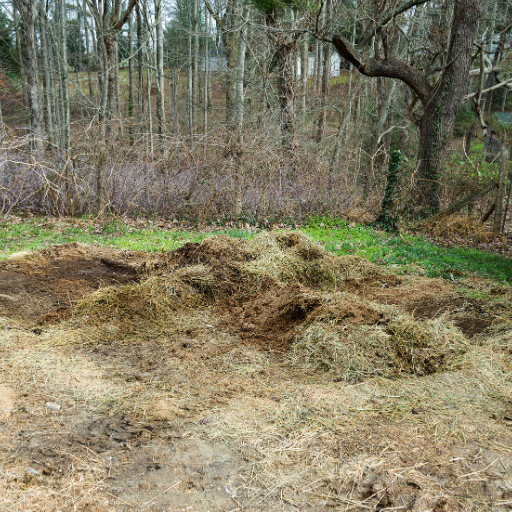
Compost chicken manure at home and gather manure and bedding materials. Manure should be mixed with carbon-rich materials such as straw, leaves or wood shavings to make the best compost mixture. The best ratio of carbon to nitrogen is about 30:1 for compost making. First, put carbon-rich materials at the base, then manure, and add more carbon-rich layers. Keep the temperature between 130-150°F so that pathogens are destroyed. Turning the pile every few days helps mix and aerate the content. Maintain moisture levels that keep the heap damp but avoid water logging it. After several months of regular turning and monitoring, you should have a dark, crumbly substance that looks like humus and can be utilized in soil improvement processes. It should have fully decomposed before use so as not to burn plants; this can be confirmed by touching it to check whether it emits heat or smells earthy.
How to Create Organic Chicken Manure Compost
- Material Gathering: Get chicken manure and bedding like straw, wood shavings or leaves. Make sure the mixture contains a balance of high-carbon and high-nitrogen materials.
- Layering the Compost: Begin by putting a layer of carbon-rich material at the bottom of your compost bin or pile. Use alternating layers of chicken manure and carbon-rich materials to aid decomposition processes.
- Temperature Monitoring: Ensure that the heap temperature is 130-150°F for many days in order for pathogens to be killed off effectively. Continuously check using a compost thermometer.
- Pile Turning: Turn the compost after some days to allow aeration. That way, you can ensure an even distribution of heat, oxygen, and moisture, which are essential for effective decomposition.
- Moisture Maintenance: Keep it damp but not wet, like how a squeezed sponge feels—moist on touch without water dripping; this enhances microbial activities that degrade organic matter.
- Time and Observation: Leave it to decompose in several months while continuing to turn and observe the process on your pile.When it turns dark, crumbly, and has an earthy odor, it’s ready, showing that all material has been broken down over time.
- Apply It: Before you apply it to plants, make sure that the compost has no more heating up, as it would burn them completely. This is applied to garden soil used in growing crops such as flowers, enriching them for healthy growth.
Common Mistakes in Chicken Manure Composting
One mistake commonly made when adding chicken manure is adding too much without enough carbon-rich materials; this imbalance leads to excess ammonia production, causing bad odors and a slow process of composting itself.’The recommended ratio is about 30 parts carbon to 1 part nitrogen by weight, which ensures ideal decomposition.
Another mistake often made is not monitoring and maintaining appropriate moisture levels. Chicken manure compost should be wet but not waterlogged to support microbial activity. This moisture content should be about 50-60%, just like the feel of a squeezed sponge.
Inadequate temperature management is still another major mistake.’ In case such temperatures do not reach at least 130°F (54°C), then organisms causing diseases, as well as weed seeds, may not die completely; on the other hand, over 160°F (71°C) may kill beneficial microorganisms. To maintain the optimum level for several days, a compost thermometer will help check between 130-150°F (54-66°C).
Composting Chicken Manure Tools You Should Have
A compost thermometer helps monitor internal temperature of your heap so that it remains within optimal limits for effective decomposition and pathogen control.’ For proper turning and aeration of compost, you will need a pitchfork to ensure enough oxygen is required by microbes involved in organic matter breakdown. Furthermore, it comes with a moisture meter that is useful in determining whether the pile requires too much water or too little wetness, making it work effectively on rotting wastes . These tools play a significant role in ensuring a well-managed composting process, hence fastening the decay rate and good quality fertilizers produced from them.
How to Properly Apply and Store Chicken Manure in Your Garden?
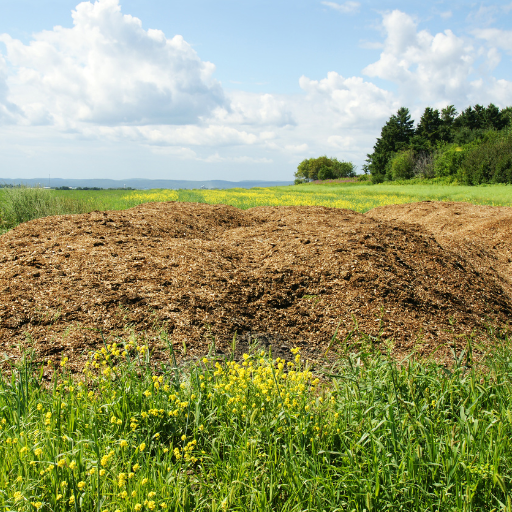
Composting ensures chicken manure is safely employed in your garden without pathogens or weeds. After composting, spread the composted manure evenly over the garden beds and then incorporate it into the soil as a soil amendment. Do this at least several weeks before planting so nutrients can fully mix with the soil. A 40-50 pounds per 100 square feet rate will give maximum yields.
Chicken manure should be stored in a covered, well-ventilated place to prevent odor problems and nutrient runoff. The alternative option could be having strong containers to hold them or build barns for keeping such manures only. To avoid creating an anaerobic condition where ammonia production occurs, resulting in the loss of essential nutrients like nitrogen, it should be kept dry by avoiding moisture, hence breeding pests and leakages that may contaminate water sources. Storage must be handled properly so that the value of nutrients remains high until it is time to apply them.
Preparation and Application Methods
To make chicken manure suitable for use in gardens, start by making it through a composting process where all hazardous pathogens are broken down while preserving its nutritional content. In this process, brown materials such as straw, wood chips, or leaves from carbon-rich sources are used with poultry waste at around 3:1 (browns to manure by volume). The heat should not exceed 130-150°F (55-65°C) depending on whether young children are going to work on them or not because heating kills pathogens inside these organisms; besides, they need enough oxygen supply hence they have to turn frequently.
After being composed, chicken droppings can become soil improvement tools when applied to fields. Any top six inches of land should have between forty and fifty pounds for one hundred square feet added, among other things, sawdust, hay, etc.To encourage the blending of plant nutrients with the soil and improve its structure, this must be done in advance prior to planting anything.
To prevent nutrients from escaping and save the environment from pollution while keeping chicken manure, it is necessary to select a well-covered and ventilated area. Alternatively, farmers should use weather-proof containers or specific sheds for storing dung. Wetness should not be allowed inside since such manure will lack air, increasing the chances of losing nitrogen as ammonia, which can fertilize crops easily. The integrity of the manure will then be maintained by ensuring that it does not leak and only placing it away from water sources.
Safe Storage Practices
Preventing loss of nutrients through leaching into the environment is important when storing chicken manure. It starts by identifying a storage location that’s safe from leaks in manures containment like weatherproof bins or specialized barns. This is crucial because excess moisture leads to anaerobic conditions, causing lost nutrients due to ammonia volatilization.
Also, onsite inspection must take place frequently to identify leaks promptly that can be fixed immediately and save the dung’s authenticity. On top of this, it is necessary to fight pests that can destroy stored fertilizer, such as rodents and flies. Lastly, these places should be as far away from water sources as possible since they are risky sources of contamination.
Technical Parameters for Effective Storage Here are some technical parameters to consider for effective storage:
- Surrounding Temperature: To prevent overheating or freezing maintain ambient temperatures. Monitor optimal temperature ranges between 40-60°F (4-15°C).
- Moisture Level: The moisture content of stored droppings must always remain below 60% so that anaerobic conditions and ammonia release may be discouraged.
- Ventilation Rate: Ensure enough air movement so the storage environment has adequate oxygen levels, typically about 0.1 cubic feet per minute (CFM) per ton of manure.
- Seepage Control: Line or barrier materials should have permeability less than 1×10^-7 cm/sec to retain nutrients most effectively and prevent possible seepage.
- Distance from Water Sources: Regulations commonly suggest a minimum distance of one hundred feet (30 meters) from any water bodies to minimize the risk of contamination.
By implementing these practices, the stored manure remains nutrient value and reduces environmental impact.
Avoiding Common Mistakes
Avoiding common mistakes in manure storage is critical for preserving the quality of the manure and safeguarding our environment. One major mistake is lack of coverage, which leads to nutrient loss through ammonia volatilization and encourages pest infestation. The use of waterproof covers or tarps can help curb these situations effectively. On the other hand, failing to prepare a site adequately before storage may cause problems like failure to design appropriate drainage systems. If not properly drained out, it can lead to leachate spillages, thus contaminating groundwater. Lastly, overloading facilities with more than their designed capacity could collapse, leading to sudden releases. Such risks can be prevented through regular examination and adherence to capacity specifications.
Reference sources
- Lowe’s
- Source: Black Hen Chicken Manure 20-lb Organic Compost
- Summary: Lowe’s provides detailed information on Black Hen Chicken Manure, emphasizing its 2-3-2 nutrient analysis and slow-release properties. The compost adds organic matter to the soil, enriching it with essential nutrients and supporting sustainable gardening practices.
- The Spruce
- Source: Using Chicken Manure as Garden Fertilizer
- Summary: The Spruce discusses the comprehensive nutrient content of chicken manure, including macronutrients like nitrogen, phosphorus, and potassium, as well as crucial micronutrients. This source validates the effectiveness of chicken manure as a complete organic fertilizer for various gardening applications.
- University of Nevada, Reno Extension
- Source: Using Chicken Manure Safely in Home Gardens
- Summary: The University of Nevada, Reno Extension provides an authoritative guide on the safe use of chicken manure in home gardens. The publication highlights its high levels of nitrogen, potassium, phosphorus, and calcium compared to other manures, confirming its suitability as a potent organic fertilizer.
Frequently Asked Questions (FAQs)
Q: What are the benefits of using black hen chicken manure as a natural organic fertilizer?
A: Black hen chicken manure is a natural organic fertilizer that provides organic nutrients essential for plant growth. It adds organic matter to the soil, improves soil structure, and enhances moisture retention, making it ideal for lawns and gardens.
Q: How does black hen chicken manure compare to fresh chicken manure?
A: Black hen chicken manure is aged chicken manure that has been aerated and managed for moisture, reducing its ammonia content and making it safer and more effective as a natural fertilizer compared to fresh chicken manure.
Q: Can black hen chicken manure be used in a chicken coop?
A: Yes, after proper composting, black hen chicken manure can be spread in a chicken coop to provide organic nutrients and improve the overall health of the soil within the coop environment.
Q: What is the role of microbes and microbes in black hen chicken manure?
A: Microbes in black hen chicken manure help to decompose the organic matter, releasing minerals and nutrients into the soil, which are essential for plant growth and soil health.
Q: How does chicken manure pellets contribute to soil health in lawn and garden care?
A: Chicken manure pellets provide a slow-release source of organic nutrients, improve soil structure, and add organic matter, resulting in healthier lawns and gardens over time.
Q: How does black hen chicken manure help in the composting process?
A: Black hen chicken manure is rich in nitrogen, which is crucial for composting. It helps organic matter to break down more efficiently, resulting in a high-quality organic compost that provides organic nutrients to plants.
Q: Can black hen chicken manure be used for all types of plants?
A: Yes, black hen chicken manure is versatile and can be used for a wide range of plants, including vegetables, flowers, and shrubs, providing essential organic nutrients for healthy growth.
Q: How should I apply black hen chicken manure to my garden?
A: To apply black hen chicken manure, spread it evenly over the soil surface and mix it into the top few inches of soil. Ensure it is evenly distributed to provide a consistent source of minerals and nutrients throughout your garden.






